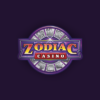Over the past decade, the European gambling market has experienced notable expansion. With regulatory bodies now collecting and disseminating jurisdictional online market data, the industry has emerged from obscurity, becoming increasingly transparent. Excluding lotteries, licensed online gambling revenue across Europe has shown consistent growth, rising from €17.3 billion in 2019 to €24.6 billion in 2021.
While the Covid-19 crisis temporarily slowed growth compared to 2019, it hastened the market’s shift from offline to online platforms. In 2021, Europe’s online gambling revenue was projected to reach €36.4 billion, representing 41.7% of total gambling gross gaming revenue (GGR) and marking a 19% increase from 2020. Notably, Eastern European countries have emerged as some of the fastest-growing regulated online markets.
However, at the onset of 2022, the region faced another significant challenge—the war in Ukraine. This conflict has resulted in devastating consequences, with thousands of lives lost and millions at risk. Russian aggression has caused extensive damage to Ukraine’s infrastructure, inflicted over 600 billion in direct economic losses, reshaped the global energy landscape, caused irreversible environmental harm, and triggered the world’s largest human displacement crisis. Naturally, these factors, coupled with the ongoing crisis, have had a profound impact on the region’s gambling market and player activity.
Romania: A Thriving Online Gambling Hub in Europe

Regulated by the National Gambling Office (ONJN), Romania’s online gambling market has experienced remarkable growth in recent years. With a diverse array of products, private operators can obtain local licenses to cater to the burgeoning market.
The Gross Gaming Revenue (GGR) in Romania has seen consistent annual growth, with significant spikes in recent years. Notably, the year 2020 witnessed an 88% increase in GGR, driven in part by the Covid-19 pandemic. However, subsequent years saw more modest growth rates, with a 9% increase in 2021.
Romania’s online gambling sector boasts one of the highest shares of gambling activity in Europe, standing at 56.7%. This places it among the top five countries alongside the UK and Denmark. The dominance of online betting is evident, comprising 60% of the market, while casino products make up nearly 30%. Other sectors, including poker, lottery, and bingo, contribute less than 10% combined.
Operators licensed in Romania face a 16% tax on gambling revenues, with a minimum annual requirement of €100,000. However, recent legislative changes have aimed to alleviate the tax burden, providing a more favorable environment for operators.
The Romanian government continues to prioritize the regulation and growth of the gambling industry. Efforts to amend tax laws reflect a commitment to fostering a competitive and sustainable gambling market in the country.
Czech Republic: Leading Growth Potential in Eastern Europe

Since 2017, the Czech Republic has been at the forefront of fully regulated online gambling, overseen by the Ministry of Finance. The legislative framework permits a wide range of online gambling activities, including lotteries, sports betting, casino games, and card games.
According to data from the Czech Ministry of Finance, the Gross Gaming Revenue (GGR) in the country has experienced significant growth, soaring from nearly €330 million in 2017 to €800 million by 2021. Despite a slight slowdown in 2018, the market rebounded strongly in subsequent years, with online gaming playing a central role in driving growth, especially during the Covid-19 pandemic when major sporting events were suspended.
Online sportsbook revenue has seen a remarkable tenfold increase over the past decade, reaching CZK7.6 billion (€298 million) in 2020, despite disruptions to the sporting calendar.
The Czech Republic’s online gambling market has emerged as a significant player in Europe, ranking 10th in terms of total market revenue growth. Sports betting dominates the market, accounting for approximately 48% of GGR, followed by casinos at 40%, with lottery and poker making up the remainder.
Taxation in the Czech gambling market is set at 23% of GGR for most games, with lotteries and “technical games” facing a higher tax rate of 35%.
Efforts to regulate the market and maintain transparency include the establishment of a blocklist by the Ministry of Finance, which effectively prevents unlicensed operators from accessing the Czech market. Since 2018, the Ministry has been required to obtain court approval before adding new domains to the blocklist, ensuring a fair and transparent regulatory environment for licensed operators.
Poland: Stringent Regulation in Europe’s Online Gambling Landscape

Poland stands as a formidable yet promising market in the realm of online gambling, characterized by stringent regulatory measures. The Polish online gambling sector operates under a state monopoly, with exceptions made for online betting and promotional lotteries. Private operators can obtain licenses specifically for sports and horse racing betting, but not for other online gaming products.
Data from the Polish Ministry of Finance indicates robust growth in regulated online Gross Gaming Revenue (GGR), surpassing €600 million in 2021. Moreover, betting turnover exceeded €2 billion, marking a notable 46% increase from the previous year, demonstrating positive and stable growth dynamics despite the challenges posed by the Covid-19 pandemic.
The regulatory framework in Poland has led to significant disparities in GGR between online betting and casino gaming. Betting dominates the market, accounting for over 50% of GGR, followed by online casinos at more than 23%, with lotteries capturing nearly 20% of the market share. Bingo and poker collectively represent a smaller portion, accounting for 2-3% of GGR.
Licensed online betting operators in Poland are subject to a 12% turnover tax, a policy that has faced criticism but remains unchanged since the 2017 amendments.
The Ministry of Finance has taken proactive steps to regulate the industry, maintaining a blocklist of nearly 25 thousand domains as of May 2022. This effort underscores Poland’s commitment to establishing a regulated environment in the online gambling sector and highlights the considerable interest from operators in the Polish market.
Impact of the War in Ukraine on the Eastern European Gambling Market
The ongoing military conflict involving Russia and Ukraine has reverberated throughout the Eastern European gambling sector, significantly altering the landscape. Russia’s isolation from international events, including sports competitions like the UEFA Champions League and Formula-1 Grand Prix, alongside imposed sanctions, has dealt a blow to the Russian gambling industry. Leading brands like Parimatch, once prominent in Russia and Belarus, have opted to exit the market in solidarity with Ukraine, following legal protocols. Similarly, other global giants such as DraftKings, FanDuel, and PokerStars have joined this stance, withdrawing from the Russian market.
The broader crisis stemming from the conflict, coupled with shifts in the energy market and escalating inflation, has contributed to economic uncertainty in Eastern Europe. Despite declining incomes, people continue to seek entertainment avenues, with betting and gambling offering emotional relief and distraction from stress. Recent studies indicate sustained interest in betting across Eastern Europe, with notable activity spikes during weekends and major sports events. While the cost-of-living challenges have impacted consumer spending, the overall interest in gambling remains resilient in the region, except in Russia, Belarus, and Ukraine, where the conflict has disrupted market dynamics.





















